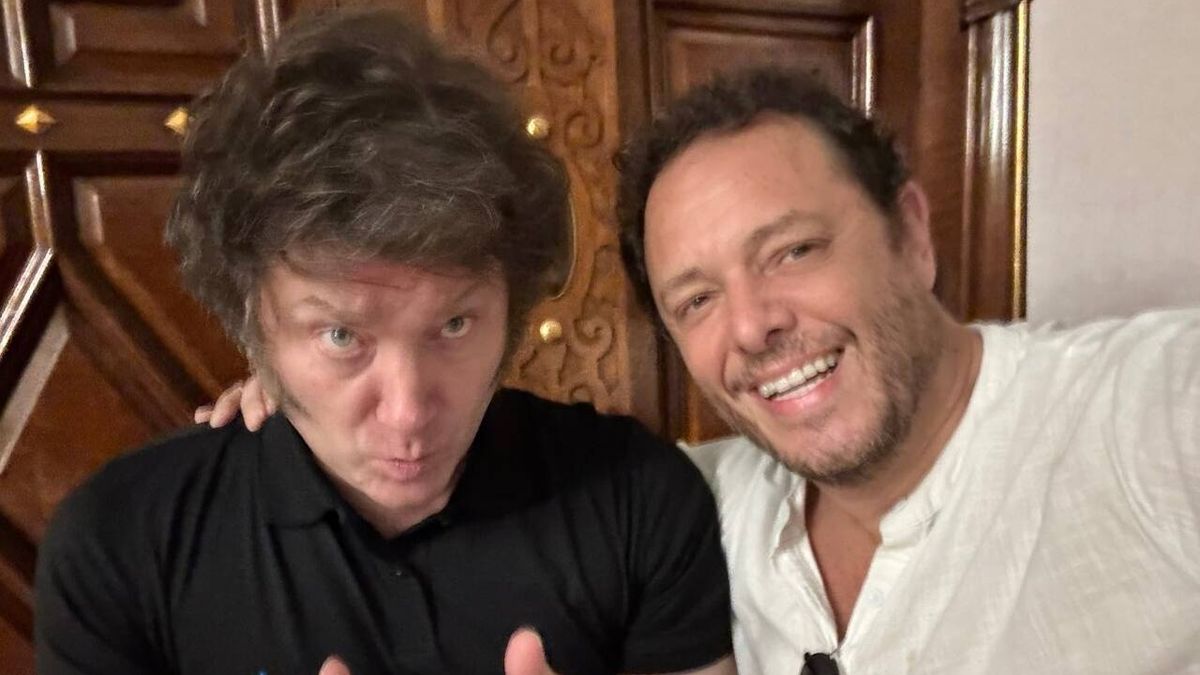“When a government runs out of a peso, there is no mystery: it is time to make a fiscal adjustment,” summarized the economist on his social networks, and continued: “The idea that they can choose whether to adjust or not is, frankly, a delusion. The adjustment is going to come, whether we like it or not. The only decision the government can really make is about the when and the how.”
From there, he described that “there are two paths: the first, which is carried out by the president Javier Mileiis to take the bull by the horns and do the voluntarily adjust. This is how you decide how to adjust, and as a result markets calm down, country risk and inflation decrease“. In contrast, he pointed out that “The other way is to caveman, when there is no more money leftmarkets close, country risk explodes, and there is a danger of default. That’s when they start hitting the ticket printing machine to cover the hole. Does it sound familiar to you?”
Embed – https://publish.twitter.com/oembed?url=https://twitter.com/dreidel1/status/1850171195330592982&partner=&hide_thread=false
I am going to share a reflection on the fiscal adjustment. It’s a little long but I promise it’s shorter than One Hundred Years of Solitude (or One Hundred Years of National Impoverishment, with forgiveness from García Márquez).
When a government runs out of a peso, there is no mystery: it is time to make adjustments…
— Demian Reidel (@dreidel1) October 26, 2024
In that framework, he understood that “As always, this inflation tax is paid mainly by the poorest. The long-term consequences of this forced adjustment are even worse: more poverty and less growth. It’s that simple.”
Criticism of Kirchner’s management
Demian Reidel conducted an analysis of the national government in the period 2003-2015: “Guess how they adjusted the K? Because, let’s be clear, K adjusted. They adjusted the retirees, the universities and the entire town. But especially to the poorest. The result? We have it in front of our eyes. “They take a walk around La Matanza (or many other places) and then they tell me.”
“Let’s not be fooled: the K adjusted. And how they adjusted! The Kirchnerist Caveman Kleptocracy The money slipped and then he adjusted, the hard way, making the most vulnerable pay the cost. Because? Because it’s easier to continue having fun until someone cuts the music and blame someone else,” he said.
Then, he contrasted with the fact that “President Milei decided to do the opposite: The adjustment began from day one. Not because we felt like it but because there was no alternative: either we did it orderly or in a caveman style. By doing so voluntarily, we lower inflation and country risk, and the country begins to grow. This does not need to be imagined. It’s happening today.”
In conclusion, he asked: “Do they want to return to the Caveman Kleptocracy? Or do you support us to continue down this path and thus take the country out of this miserable destiny and turn it into the prosperous country that we all want? For me the choice is obvious. “The people see it.”
Marcos Galperín reacted to Reidel’s analysis
Through the same social network X, the founder of Free market, Marcos Galperincommented on the presidential advisor’s publication: “I agree with your analysis Demian, and The results are beginning to be seen much faster than many of us imagined.. As we say at MELI, paradises have no shortcuts. Work, perseverance and consistency over time. “There is no other way.”
“We are at the foot of the canyon every day because, indeed, paradises have no shortcuts,” he replied Reidelwho answered various comments on his publication. In one of them, he considered that the management of Néstor and Cristina Kirchner “played each other until they cut off the music. I’m not confused at all”. In turn, he stressed that “inflation is already going down” and shared an IMF index on the growth projection of countries in Latin America for 2025, where Argentina would lead development with 5%.
Other notable reactions were that of the deputy Lilia Lemoine, who wrote: “Clearer, add water.”
Source: Ambito
I am an author and journalist who has worked in the entertainment industry for over a decade. I currently work as a news editor at a major news website, and my focus is on covering the latest trends in entertainment. I also write occasional pieces for other outlets, and have authored two books about the entertainment industry.




